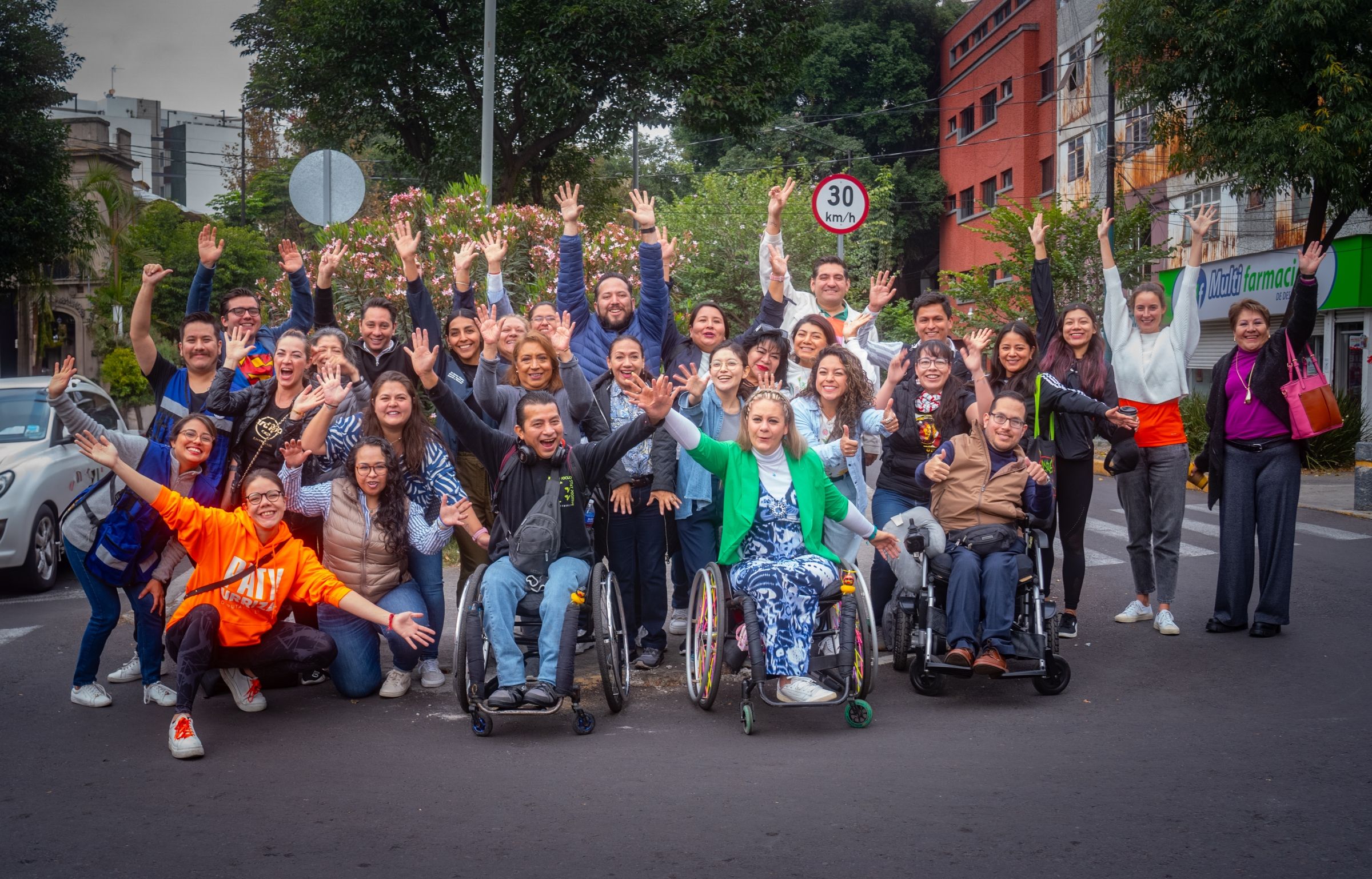Image

-
Mariana Rangel Oliva
Executive Director, Reshaping Cities
- 30 Under 30
- 2025
Mariana promotes biking and walkable communities to shape a more sustainable urban mobility.
Mexico, Age 30
How are you using education to build more sustainable and equitable communities? Tell us about your EE work and impact.
I use EE to promote sustainable urban mobility through three community projects:
Training the Next Generation of City Designers—I teach university students (urbanists, architects, engineers, and public administrators) about the impacts of car-centrism and their role in reversing it through human-centered design. Students analyze real-world cases and co-create sustainable mobility proposals.
Walkability Program—We restore unsafe or neglected crosswalks to improve walkability, working alongside local governments, congress members and neighbors. Participants co-design these interventions to feel part of the process, learning about the environmental and social benefits of walkable cities.
Cycling Education—I organize cycling groups to teach people how to commute by bike to work. Also, through a newsletter, we share educational content: how-to guides and climate-focused messages to raise awareness on the climate benefits of active mobility.
My mission with these projects is to educate future city-makers, transform urban spaces, and empower citizens to adopt sustainable ways of moving.
Tell us about your journey to where you are today. What inspired you? What has your path been like?
Growing up in Mexico City, my commute time is up to FOUR HOURS.
That’s when I started realizing our cities were prioritizing cars over people. There are many places in my city that are only accessible by car—there’s no public transit, no bike lanes, and not even sidewalks to walk there. Basically, the entire mobility system leaves you no other choice but to use a car.
This car-centricism is affecting our environment more than you think. It’s not just air pollution. It’s also the deforestation and the ecosystem destruction to make more space for cars; and "the concrete cities effect” that intensifies heat and worsens flooding because it impedes the natural filtration of rainwater.
And that’s why I became an advocate on this topic. Because, sadly, a lot of people still don’t see the lack of accessible transportation as a problem. They don't picture a city where cars are not the center of mobility. But that’s the power of environmental education: making citizens aware of how deeply it’s affecting us, and more importantly, showing them that a better city is possible.
Through our programs at Reshaping Cities, we don’t just advocate for bikes or walking; we help communities reimagine their own streets and co-create change. After all, it was us, humans, who once designed our cities around cars. So we have the power to reshape them, this time to be more sustainable, inclusive, and human-centered.
How can people learn more about or support your work?
Our mission is to spread the word and promote bikes and walkable communities in every corner of North America. If you would like to use our bike buses in your town to commute by bike to work, or if you would like to install crosswalks for pedestrians, please get in touch with me. We teach people to replicate our community programs in their hometowns. I also offer free trainings about sustainable urban mobility for university students. If you'd like to have one, get in touch. You can also follow us on social media; online support helps us to reach more people. You can find Reshaping Cities on Instagram and TikTok.
A Little More About Me
What advice would you give to the next generation of leaders?
I didn’t grow up in a powerful family, with a fancy network of influential people. Instead, I built my own path with persistence, passion, and a strong belief in the importance of what I do. So my advice for the youth is this: Leadership is not reserved for the “powerful”; it’s available to anyone who has the heart and passion for it. If you have the heart and will, you can be a leader too.What makes you most excited to be an EE30U30 awardee?
EE 30 Under 30 is the only fellowship that brings together only environmental educators, people who understand firsthand the challenges and the creativity needed to drive change through education. I’m excited to be part of a like-minded community, to exchange ideas, support each other and grow together.What (or who) keeps you hopeful for the future?
I’ve faced a lot of skepticism around urban biking and walkable cities, especially in such a car-centric region like North America. Many people can’t even imagine life beyond cars. But after years of advocacy, I’ve seen how mindsets can shift. I’ve heard things like, “This is my first time walking in this part of the city,” or “Now I see why we need walkable streets.” That’s what keeps me hopeful: seeing how environmental education really helps people see things differently and realize they can be part of the change.What are your hobbies?
I do bellydance, I’m learning to paint by oil pastel, and I love watching a good comfort movie with snacks on a Saturday night.

Mariana and participants during her program to recover pedestrian infrastructure. Photo credit: Sergio Padilla

Mariana training university students about sustainable urban mobility at the Mexican National Congress. Photo credit: Sergio Padilla

Mariana’s cycling groups to learn how to commute to work by bike. Photo credit: Andrea Rioseco

Mariana and participants during a session recovering pedestrian crosswalks and learning about walkable communities. Photo credit: Sergio Padilla